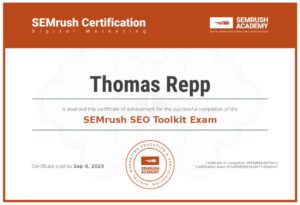 On January 6th I posted an example of a brilliant marketing strategy targeted at CEOs of industrial manufacturing companies. I promised to follow up with an interview with Bruce McDuffee the author of The Manufacturer’s Growth Manifesto on SlideShare.Bruce is also the author of the blog, Modern Marketing for Industry.
On January 6th I posted an example of a brilliant marketing strategy targeted at CEOs of industrial manufacturing companies. I promised to follow up with an interview with Bruce McDuffee the author of The Manufacturer’s Growth Manifesto on SlideShare.Bruce is also the author of the blog, Modern Marketing for Industry.
Want real life examples that content marketing works for industrial marketers? Read my recent interview with Bruce McDuffee.
TR: Bruce, when I found The Manufacturer’s Growth Manifesto I was thrilled that someone had captured, in slide presentation, the number one challenge for industrial marketers…culture change that matches market realities. How did you come up with the idea to produce The Manufacturer’s Growth Manifesto?
BM: I spotted a wonderful marketing piece from a well-known digital marketing agency in the UK that spoke about the new role of marketing, how the buyers have changed at warp speed and why businesses’, go-to-market, strategies have to change at warp speed as well. As someone who loves this stuff, I simply modified the concept and added some research to fit the CEO of a B2B manufacturing company. I produced a SlideShare presentation and then placed it on my blog.
TR: In Manifesto you mention 5-30% growth from your content marketing efforts. Can you tell us how you achieved those amazing numbers?
BM: I was employed as a Marketing Director by a global industrial measurement company tasked with improving their marketing…specifically their digital marketing and web presence. It was apparent they needed to focus on more content to educate the prospect and not pitch products so hard. I convinced sales and marketing teams that it was easier to engage a prospect with helpful content rather than product’s features and benefits. By engaging a prospect at the top of the funnel with helpful content it was easier to achieve top-of-mind awareness and establish credibility rather than pitching products. Especially in a niche industry.
TR: Was this a difficult transition for this company?
BM: At first…absolutely. I needed to get buy-in from top management, as the sales folks down the hall did not buy it. Once the C-suite got it and I showed results…things became more positive.
TR: How did you get this unyielding culture to bend?
BM: We started small. For example, we improved the subscription rates of our opt-in subscribers by offering helpful content that never pitched product. This was an eye-opener for many of the staffers. To test the education aspect of content marketing we ran two unique ads in GlobalSpec. During a new product launch we produced one ad that simply pitched the product. The other ad in GlobalSpec offered a calculator that would help an engineer with certain aspects of the new product. We receive 10 times the number of clicks on the helpful content versus the product pitch. We also did webinars that promoted education rather than product and the response was overwhelming… in favor of helpful content.
TR: Once you were fully engaged in your content marketing strategy what kind of results did you achieve?
BM: The first year we had 19% growth in sales, the second year we had 21% growth and the third year we saw 30% growth. These numbers compared to typical, pre-content marketing, annual growth rates of 4% to 6%. Manufacturing companies that embrace…don’t pitch products, pitch education…are going to kill it.
TR: I know you used a marketing automation platform (MAP) to deploy and measure all your content. What MAP platform did you use?
BM: We used Eloqua, brought on board 6 years ago. Eloqua was cumbersome at the time and I spent a great deal of time learning it myself. I set up the MAP system myself. Eloqua did provide us with the measurement tools we needed. Even back then, Eloqua was very powerful. Today there are many MAPs and they are much easier to deploy, easier to manage and even more powerful because of the reach of social media.
TR: Bruce, you are obviously well versed in industrial marketing. What books and authors have you read that helped you develop a passion for modern marketing techniques for the industrial market?
BM: Crossing the Chasm: Marketing and Selling Disruptive Products to Mainstream Customers by Geoffrey Moore helped me understand marketing techniques used in the high tech industry and how to employ the same, web-based strategies, in the industrial market. Positioning: The Battle for Your Mind by Al Reis helped me understand how to get into the mind of the industrial buyer. David Aaker’s book, Building Strong Brands helped me understand branding is more important than ever…especially industrial branding. I am also aware of the popularity of Jay Baer’s book, Youtility: Why Smart Marketing is about Help Not Hype. Jay’s book is next on my list of must-reads. I believe industrial marketing can benefit greatly from Jay’s concepts. I have applied Jay’s principles in B2B and they work. Another favorite is Chip and Dan Heath’s Made to Stick: Why Some Ideas Survive and Others Die. This book helped me trust the simplicity of ideas to sell. The Heath’s used some very cool case studies to demonstrate the best way to promote sticky ideas.
TR: Yes…Jay’s book has just been loaded onto my Nexus 7. I am looking forward to reading Youtility as well.
TR: You have worked in digital marketing for some large companies, including Boeing. What would be your best advice to industrial marketers in the Age of Google?
BM: The winner of market share in the industrial market will be companies that engage early in the buying process with helpful content. This can be extremely efficient and doesn’t necessarily require large budgets and lots of additional people on the marketing team. Making this shift from pitching products to promoting education will move the revenue needle. It’s not easy, but boy does it pay off. Make sure you have total buy-in from the C-suite or it will be a very difficult change in spite of the potential benefits.
TR: Thanks Bruce for your time and best of luck.
Want to know the best way to start content/inbound marketing for your industrial company? DOWNLOAD NOW The Beginner’s Guide to Industrial Content Marketing.
Author:Tom Repp
A passionate marketer attempting to change the way industrial marketers leverage the web as a growth-oriented, lead generation machine. View all posts by Tom Repp




